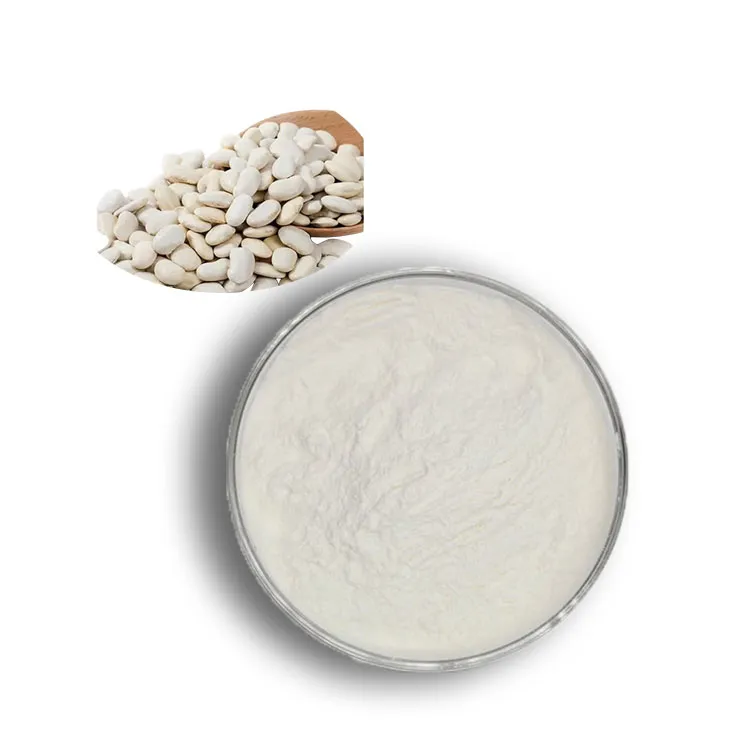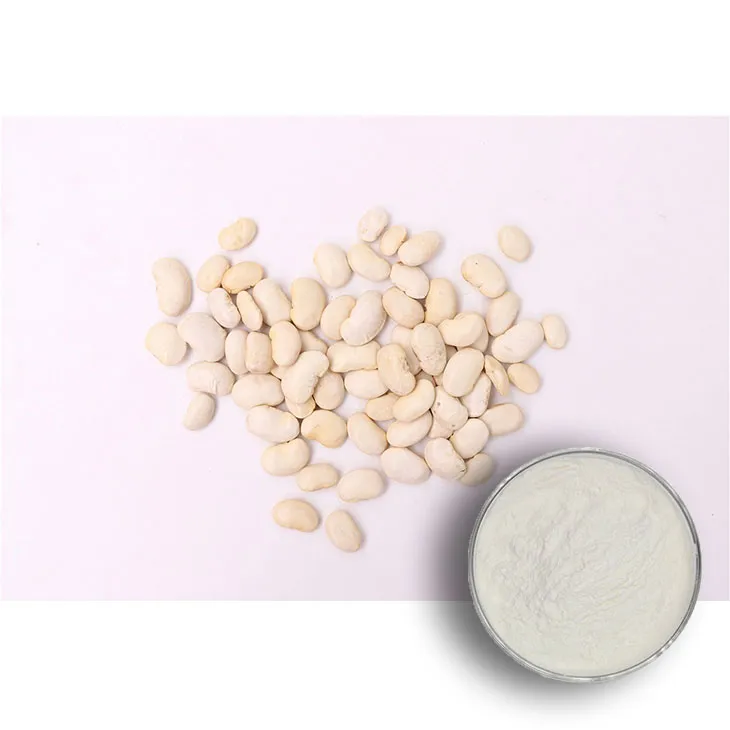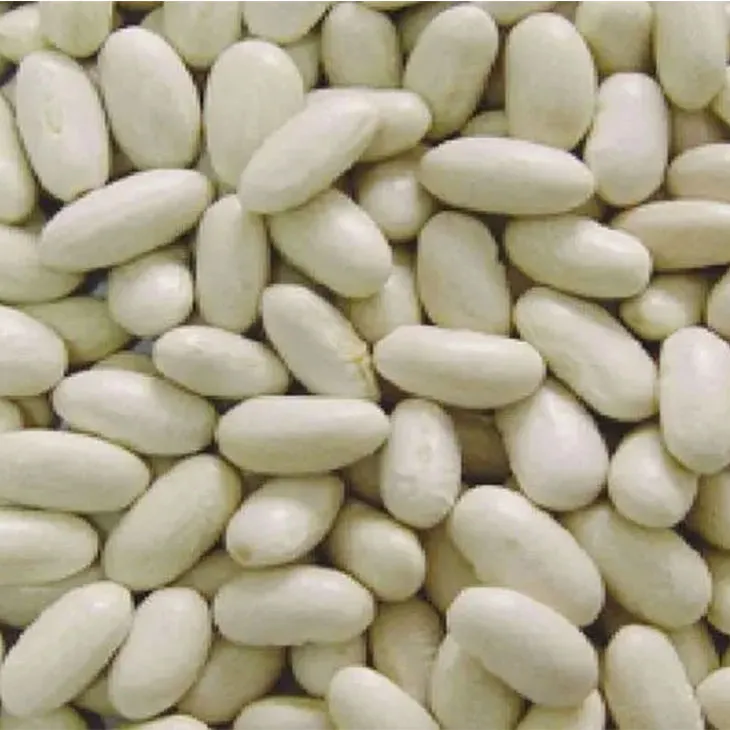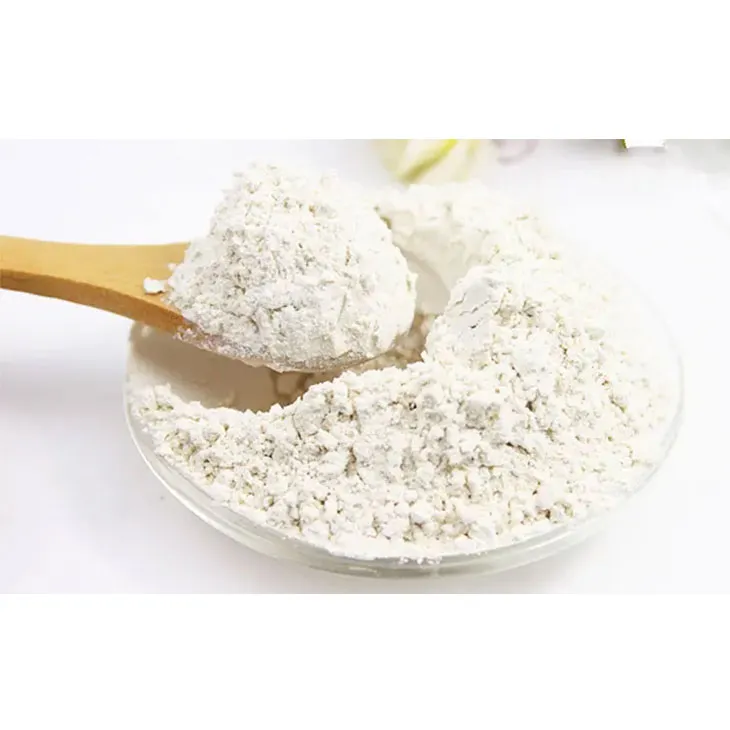- 0086-571-85302990
- sales@greenskybio.com
The Healing Properties of Kidney Bean Extract: A Comprehensive Health Guide
2024-07-04

1. Introduction
Kidney beans, a common and nutritious legume, have been part of the human diet for centuries. In recent years, scientific research has turned its attention to the extract of kidney beans, uncovering a plethora of potential health benefits. This comprehensive guide will explore the various healing properties of Kidney Bean Extract, from its impact on metabolism to anti - inflammatory effects and its role in weight management.

2. Kidney Beans: A Nutritional Overview
Before delving into the extract, it is important to understand the nutritional profile of kidney beans themselves. Kidney beans are rich in protein, fiber, vitamins (such as folate), and minerals (like iron and potassium). The high protein content makes them an excellent plant - based source of this essential nutrient, especially for vegetarians and vegans. The fiber in kidney beans helps in digestion, promotes bowel regularity, and can also contribute to a feeling of fullness, which is beneficial for weight control.

3. Metabolism and Kidney Bean Extract
3.1 Role in Carbohydrate Metabolism
Kidney Bean Extract has been shown to play a significant role in carbohydrate metabolism. One of the key components in the extract is believed to inhibit certain enzymes that are involved in the breakdown of complex carbohydrates into simple sugars. This means that the absorption of glucose from the digestive tract may be slowed down. As a result, there are more stable blood sugar levels throughout the day. For individuals with diabetes or those at risk of developing diabetes, this can be a crucial factor in managing their condition.
3.2 Impact on Fat Metabolism
There is also evidence to suggest that kidney bean extract can influence fat metabolism. It may enhance the activity of certain enzymes in the liver that are responsible for breaking down fats. This could potentially lead to a reduction in the accumulation of fat in the body. Additionally, the extract might increase the body's ability to use stored fat as an energy source during periods of physical activity or fasting.

4. Anti - Inflammatory Effects
Chronic inflammation is associated with a wide range of health problems, including heart disease, arthritis, and certain cancers. Kidney bean extract has shown potential anti - inflammatory properties. Phytochemicals present in the extract are thought to modulate the body's immune response and reduce the production of inflammatory mediators. For example, in vitro studies have demonstrated that the extract can inhibit the activation of certain immune cells that are involved in the inflammatory process. In animal models, it has been shown to reduce inflammation in tissues, such as in the joints in arthritis - like conditions.

5. Weight Management
5.1 Appetite Suppression
The fiber content in kidney bean extract, as well as its potential impact on hormonal regulation, can contribute to appetite suppression. When consumed, the fiber absorbs water and expands in the stomach, creating a sense of fullness. This can lead to a reduction in overall food intake. Additionally, some studies suggest that the extract may influence the hormones that control hunger and satiety, such as ghrelin and leptin. By regulating these hormones, it may help individuals better control their eating habits.
5.2 Calorie Blocking
Another aspect of kidney bean extract in weight management is its potential to block calorie absorption. As mentioned earlier, it can interfere with carbohydrate and fat metabolism. By inhibiting the breakdown and absorption of these macronutrients, fewer calories are ultimately absorbed by the body. This can be an effective strategy for those looking to lose weight or maintain a healthy weight.
6. Other Potential Health Benefits
- Heart Health: The fiber and potassium in kidney bean extract can contribute to heart health. Fiber helps lower cholesterol levels, while potassium is important for maintaining proper blood pressure.
- Digestive Health: The extract's fiber content promotes the growth of beneficial gut bacteria, which is essential for a healthy digestive system.
- Antioxidant Activity: Kidney bean extract contains antioxidants that can protect the body's cells from damage caused by free radicals.
7. How to Incorporate Kidney Bean Extract into Your Diet
7.1 Kidney Bean Supplements
Kidney bean extract is available in supplement form. When choosing a supplement, it is important to look for a reputable brand that adheres to quality standards. Follow the recommended dosage instructions carefully, as excessive intake may have potential side effects.
7.2 Whole Kidney Beans
You can also consume whole kidney beans as part of a balanced diet. They can be cooked in a variety of ways, such as in soups, stews, or salads. However, it is important to note that raw or undercooked kidney beans contain toxins that can be harmful, so they must be cooked thoroughly.
8. Precautions and Side Effects
While kidney bean extract has many potential health benefits, there are also some precautions to consider. Some individuals may be allergic to kidney beans, and in such cases, the extract should be avoided. Additionally, high - dose supplements may cause gastrointestinal discomfort, such as bloating, gas, or diarrhea. If you are pregnant, breastfeeding, or have a pre - existing medical condition, it is advisable to consult a healthcare provider before starting to use kidney bean extract.
9. Conclusion
Kidney bean extract offers a wide range of potential healing properties, from promoting a healthy metabolism to reducing inflammation and aiding in weight management. Incorporating kidney bean extract into your diet, either through supplements or whole beans, can be a valuable addition to a healthy lifestyle. However, it is important to be aware of the precautions and potential side effects. As research in this area continues to evolve, more may be discovered about the full potential of this natural extract in enhancing overall health.
FAQ:
What are the main components in kidney bean extract that contribute to its healing properties?
Kidney bean extract contains various components such as proteins, fibers, and certain bioactive compounds. Proteins play a role in building and repairing body tissues. Fibers can help with digestion and regulate bowel movements. Some bioactive compounds may be responsible for its potential anti - inflammatory and metabolism - promoting effects, though further research is needed to fully understand all the components and their specific contributions.
How does kidney bean extract promote a healthy metabolism?
Kidney bean extract may promote a healthy metabolism in several ways. It could potentially enhance the body's ability to process nutrients, such as carbohydrates and fats. Some compounds in the extract might influence enzyme activities related to metabolism. Additionally, its fiber content can slow down the digestion process, which may lead to a more stable release of energy and better metabolic regulation overall.
Can kidney bean extract really help with weight management?
There is some evidence suggesting that kidney bean extract can be beneficial for weight management. The fiber in the extract can increase feelings of fullness, reducing overall food intake. It may also affect the way the body absorbs and stores fat. However, it should not be considered a sole solution for weight loss. A balanced diet and regular exercise are still crucial components of a healthy weight management plan.
What are the potential anti - inflammatory effects of kidney bean extract?
The potential anti - inflammatory effects of kidney bean extract may be due to the presence of certain bioactive compounds. These compounds might interfere with the body's inflammatory pathways, reducing the production of inflammatory mediators. However, more research is required to determine the exact mechanisms and the extent of its anti - inflammatory benefits in different conditions.
Is kidney bean extract safe for everyone to consume?
While kidney bean extract is generally considered safe for most people when consumed in moderation, there are some exceptions. People with certain kidney or digestive disorders may need to be cautious. Also, some individuals may be allergic to kidney beans, in which case the extract could cause an allergic reaction. It is always advisable to consult a healthcare professional before starting to use kidney bean extract as a supplement.
Related literature
- The Nutritional and Therapeutic Potential of Kidney Beans: A Review"
- "Kidney Bean Extract: Unraveling its Role in Health and Disease"
- "Metabolic Effects of Kidney Bean - Derived Compounds"
- ▶ Hesperidin
- ▶ citrus bioflavonoids
- ▶ plant extract
- ▶ lycopene
- ▶ Diosmin
- ▶ Grape seed extract
- ▶ Sea buckthorn Juice Powder
- ▶ Beetroot powder
- ▶ Hops Extract
- ▶ Artichoke Extract
- ▶ Reishi mushroom extract
- ▶ Astaxanthin
- ▶ Green Tea Extract
- ▶ Curcumin Extract
- ▶ Horse Chestnut Extract
- ▶ Other Problems
- ▶ Boswellia Serrata Extract
- ▶ Resveratrol Extract
- ▶ Marigold Extract
- ▶ Grape Leaf Extract
- ▶ blog3
- ▶ blog4
- ▶ blog5
-
Feverfew Extract
2024-07-04
-
Cocoa Extract
2024-07-04
-
Mangosteen extract powder
2024-07-04
-
Lycopene
2024-07-04
-
Curcumin Extract
2024-07-04
-
Grape Leaf Extract
2024-07-04
-
Longan Extract
2024-07-04
-
Polygonum multiflorum extract
2024-07-04
-
Mulberry leaf Extract
2024-07-04
-
Agaricus Blazei Extract
2024-07-04





















